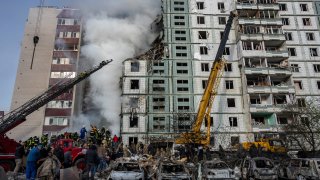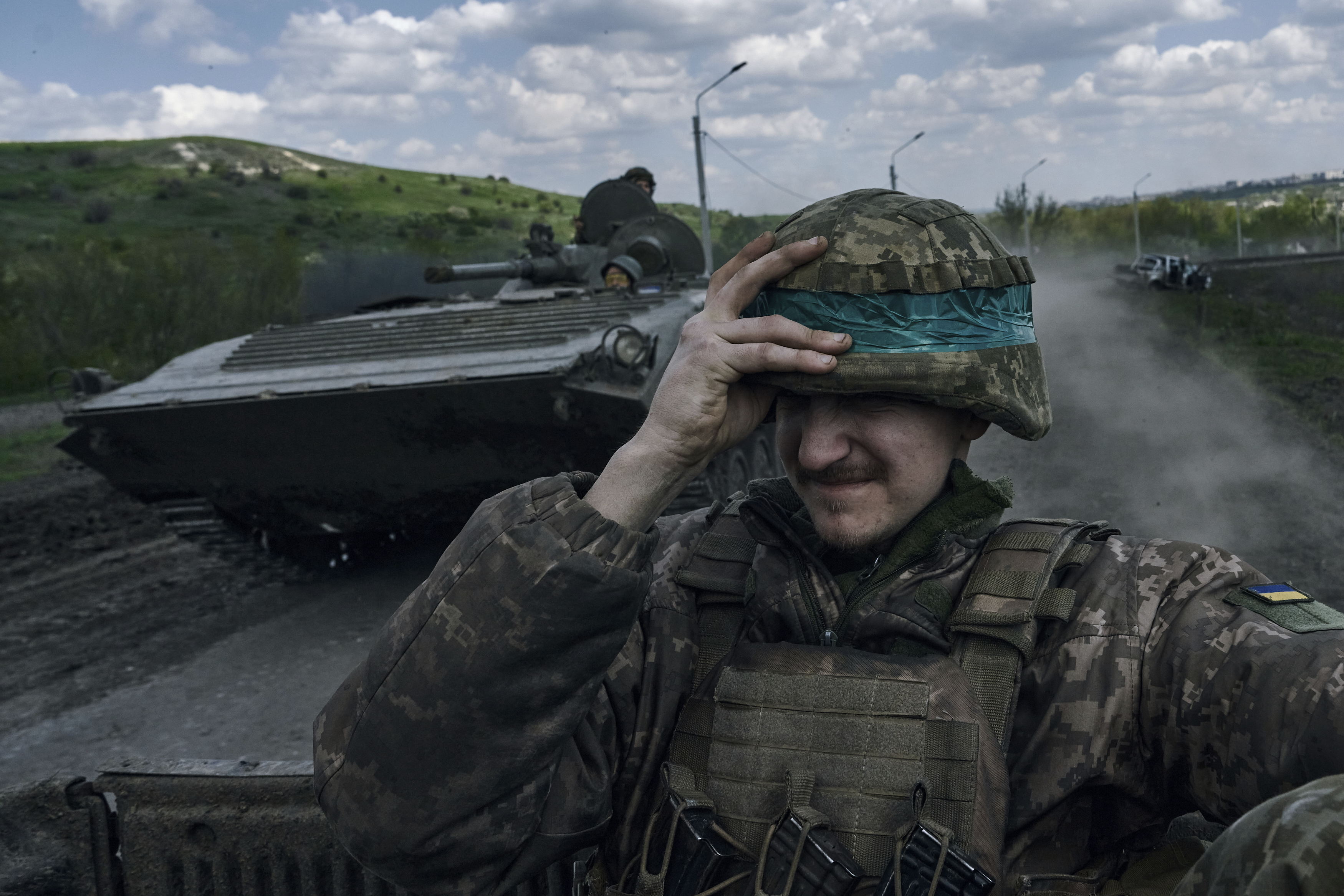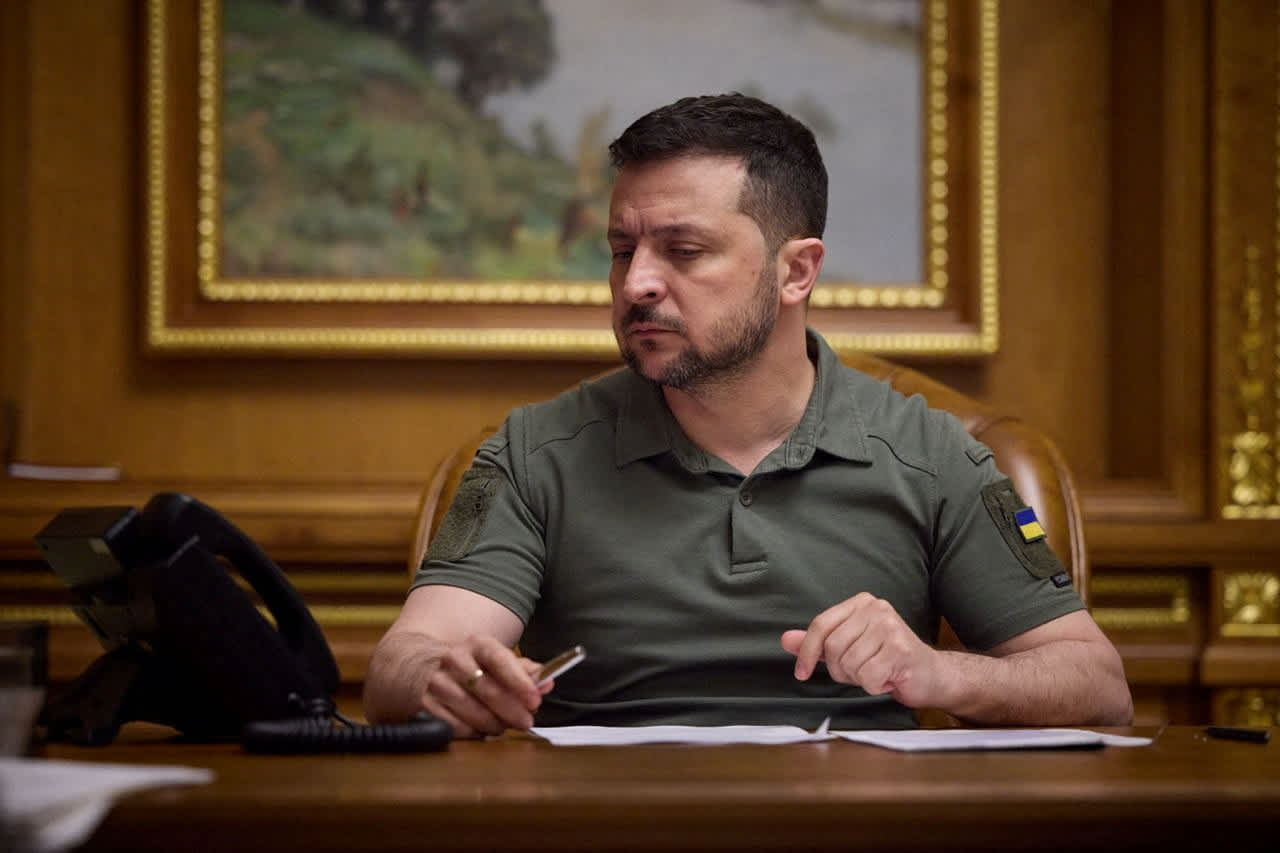
Russia fired more than 20 cruise missiles and two drones at Ukraine early Friday, killing at least 23 people, most of them when two missiles slammed into an apartment building in the center of the country, officials said.
The attacks included the first one against Kyiv, Ukraine's capital, in nearly two months, although there were no reports of any targets hit. The city government said Ukraine’s air force intercepted 11 cruise missiles and two unmanned aerial vehicles over Kyiv.
The strikes on the nine-story residential building in central Ukraine occurred in Uman, a city located around 215 kilometers (134 miles) south of Kyiv. Twenty-three people, including four children, died in that attack, according to NBC's Anna Tsybko. The Ukrainian national police said 17 people were wounded and three children were rescued from the rubble.
The bombardment was nowhere near the war's sprawling front lines or active combat zones in eastern Ukraine, where a grinding war of attrition has taken hold. Moscow has frequently launched long-range missile attacks during the 14-month war, often indiscriminately hitting civilian areas.
Ukrainian officials and analysts have alleged the strikes are part of a deliberate intimidation strategy by the Kremlin. Russia has denied its military aims at civilian targets.
Survivors of the Uman strikes recounted terrifying moments as the missiles hit when it still was dark outside.
“All the glass flew out, everything flew out, even the chandelier fell. Everything was covered in glass,” resident Olha Turina told The Associated Press at the scene.
“Then there was an explosion. ... We barely found our things and ran out,” she said.
Turina, whose husband is fighting on the front lines, said one of her child's classmates was missing.
“I don't know where they are, I don't know if they are alive,” she said. “I don't know why we have to go through all this. We never bothered anyone.”
One of the 10 people killed in the Uman attack was a 75-year-old who was in her apartment in a neighboring building and suffered internal bleeding from the shockwave of the blast, according to emergency personnel on the scene.
Three body bags lay next to the building as smoke continued to billow hours after the attack. Soldiers, civilians and emergency crews searched through the rubble outside for more victims, while residents dragged belongings out of the damaged building.
One woman, crying in shock, was taken away by rescue crews for help.
A 31-year-old woman and her 2-year-old daughter were also killed in the eastern city of Dnipro in another attack, regional Governor Serhii Lysak said. Four people were also wounded, and a private home and business were damaged.
In Kyiv, fragments from intercepted missiles or drones damaged power lines and a road in one neighborhood. No casualties were reported.
The city's anti-aircraft system was activated, according to the Kyiv City Administration. Air raid sirens started at about 4 a.m., and the alert ended about two hours later.
The attack was the first on the capital since March 9.
The missiles were fired from aircraft operating in the Caspian Sea region, according to Ukrainian Armed Forces Commander in Chief Valerii Zaluzhnyi.
Overall, he said, Ukraine intercepted 21 of 23 Kh-101 and Kh-555 type cruise missiles launched, as well as the two drones.
The attacks came as NATO announced that its allies and partner countries have delivered more than 98% of the combat vehicles promised to Ukraine during Russia’s invasion and war, strengthening Kyiv's capabilities as it contemplates launching a counteroffensive.
Along with more than 1,550 armored vehicles, 230 tanks and other equipment, Ukraine’s allies have sent “vast amounts of ammunition” and trained and equipped more than nine new Ukrainian brigades, NATO Secretary-General Jens Stoltenberg said.
Some NATO partner countries, such as Sweden and Australia, have also provided armored vehicles.
The overnight attacks and comments came as Ukrainian President Volodymyr Zelenskyy said he and Chinese leader Xi Jinping held a “long and meaningful” phone call on Wednesday in their first known contact since Russia’s full-scale invasion more than a year ago.
Though Zelenskyy said he was encouraged by Wednesday’s call and Western officials welcomed Xi’s move, it didn’t appear to improve peace prospects.
Russia and Ukraine are far apart in their terms for peace, and Beijing — while looking to position itself as a global diplomatic power — has refused to criticize Moscow’s invasion. The Chinese government sees Russia as a diplomatic ally in opposing U.S. influence in global affairs, and Xi visited Moscow last month.
_____
Arhirova and Rising reported from Kyiv. Patrick Quinn in Bangkok contributed to this story.
___
Follow AP's coverage of the war in Ukraine: https://apnews.com/hub/russia-ukraine



